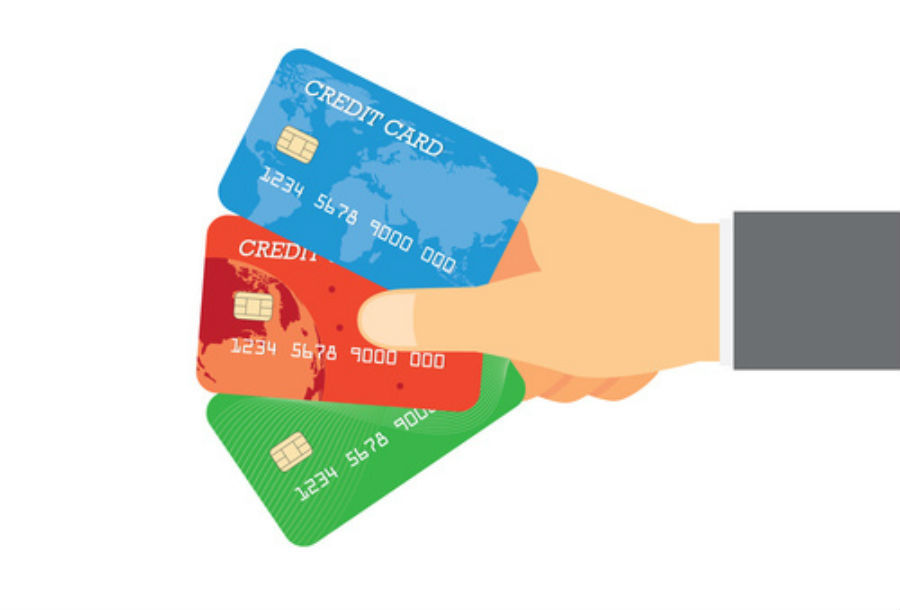
How To Avoid Mistakes On Your Credit Report
We have created eight powerful techniques for forestalling botches on your credit report. We wish you much achievement.
1) Be careful With Obligations and Credit You Don’t Utilize
Similarly as it is exceptionally simple to apply for a store Mastercard, it is likewise simple to fail to remember you have it. It is vital to recollect that the record will stay on your report and influence your score for however long it is open. Try not to wrongly have credit lines and cards you needn’t bother with. It makes you look more unsafe according to a banks perspective.
Likewise, having many records you don’t utilize expands the chances that you will disregard an old record and quit making installments on it, bringing about a brought down FICO rating. Keep just the records you use consistently and think about shutting your different records. Having less records will make it more straightforward for you to monitor your obligations and will build the possibilities of you having a decent FICO rating.
Notwithstanding, understand that when you close a record, the record of the shut record stays on your credit report and can influence your FICO assessment for quite a while. As a matter of fact, shutting unused credit records may really cause your FICO rating to drop temporarily, as you will have higher credit adjust spread over a more modest generally speaking credit account base.
For instance, in the event that your unused credit limits add up to $2,000, and your routinely utilized accounts likewise have a credit cutoff of $2,000, you have $4,000 of accessible credit. In the event that you close your unused records and owe $1,000 on the records you use consistently, you have gone from utilizing one-fourth of your credit ($1,000 owed on a potential $4,000) to utilizing one-half of your credit ($1,000 from a potential $2,000). This will really cause your credit risk rating to drop. In the long haul, however, not having additional compulsion to charge, and not having credit you don’t need will assist you with planning.
2) Try not to Have Many Credit Report Requests
A request is noticed each time somebody takes a gander at your credit report. Try not to tragically permit such a large number of requests on your acknowledge report, as it might give the idea that you have been dismissed by various loan specialists. This implies that you ought to be cautious about who checks it out. On the off chance that you are looking for an advance (finding the most reduced financing cost in view of your credit), search around inside a brief timeframe, as requests made inside a couple of days of one another will by and large be lumped together and considered one request.
You can likewise chop down the quantity of requests for you by moving toward moneylenders you have previously explored and are keen on working with. By exploring first, and moving toward second, you will probably have a couple of loan specialists getting shockingly report simultaneously, which can assist with saving your FICO rating.
3) Don’t Erroneously Over-Utilize Online Advance Rate Examinations
Online advance rate statements are not difficult to acquire. Simply type in some private data and inside the space of seconds you can get a statement on your vehicle credit, individual advance, understudy loan, or home loan. This is free and helpful, driving many individuals to analyze a few organizations on the double to get the most ideal credit rate. The issue is that since online statements are a genuinely ongoing peculiarity, credit departments consider each statement a request. This really intends that assuming you analyze an excessive number of organizations on the web, your FICO assessment will endure.
This doesn’t mean you shouldn’t look for online statements for advance. Truth be told, online credit statements are an extraordinary asset that can assist you with getting the absolute best rates on your next credit. It simply implies that you ought to painstakingly investigate organizations and limited down your decisions to a couple of banks prior to making requests. This will assist with guaranteeing that the quantity of asks on your credit report is little, and your score will areas of strength for stay.
4) Don’t Wrongly think You Just Have One Credit Report
The vast majority erroneously discuss having a “FICO rating” when as a matter of fact credit reports frequently incorporate at least three FICO assessments. There are three significant credit departments in the US that foster credit reports and compute FICO ratings, as well as various more modest credit agency organizations. What’s more, a few bigger banks work out their own credit risk score in view of data in your credit report. While further developing your credit report, you shouldn’t zero in on one number. You ought to contact the three significant credit departments and work on further developing each of the three FICO ratings.
5) Don’t Close Numerous Credit Records
Many individuals tragically close different credit accounts with an end goal to further develop their financial assessment. Assuming you close a record you really want (for instance, in the event that you close the entirety of your Mastercard accounts), you might wind up in the position where you want to reapply for credit. In addition to the fact that this is awkward, the requests from credit organizations can really hurt your credit report. Furthermore, credit departments will really approve of your credit report in the event that they can see that you have a (great) long haul financial record. For instance, don’t tragically close a charge card account you have had for the beyond 10 years, as this may really hurt your credit report.
lf you have credit accounts that you don’t utilize, or on the other hand on the off chance that you have too many credit lines, by all means take care of some and close them. Doing so may assist your credit with scoring, as long as you don’t close long haul accounts you really want. As a rule, close your freshest records solitary when you are sure you won’t require that credit sooner rather than later.


